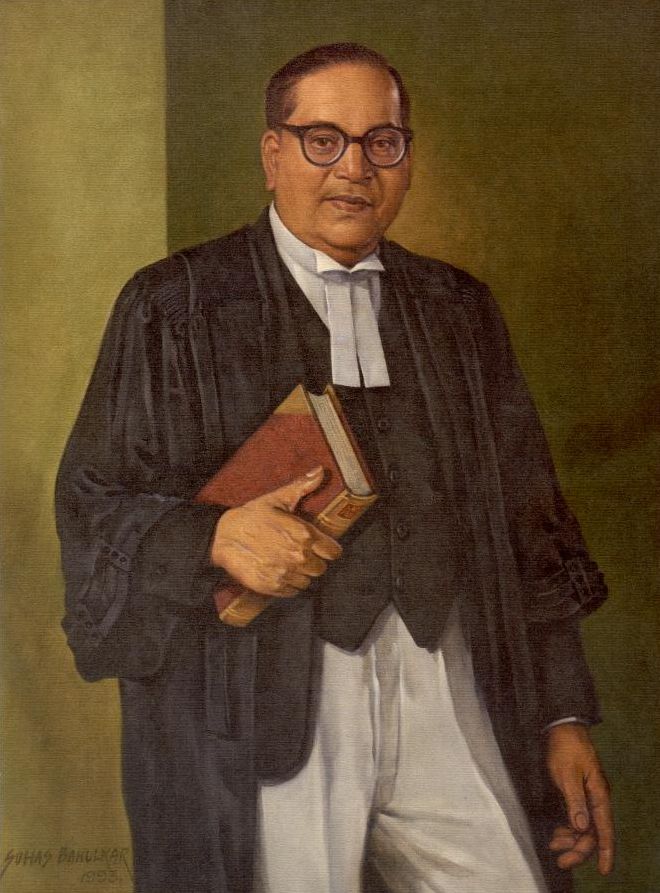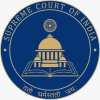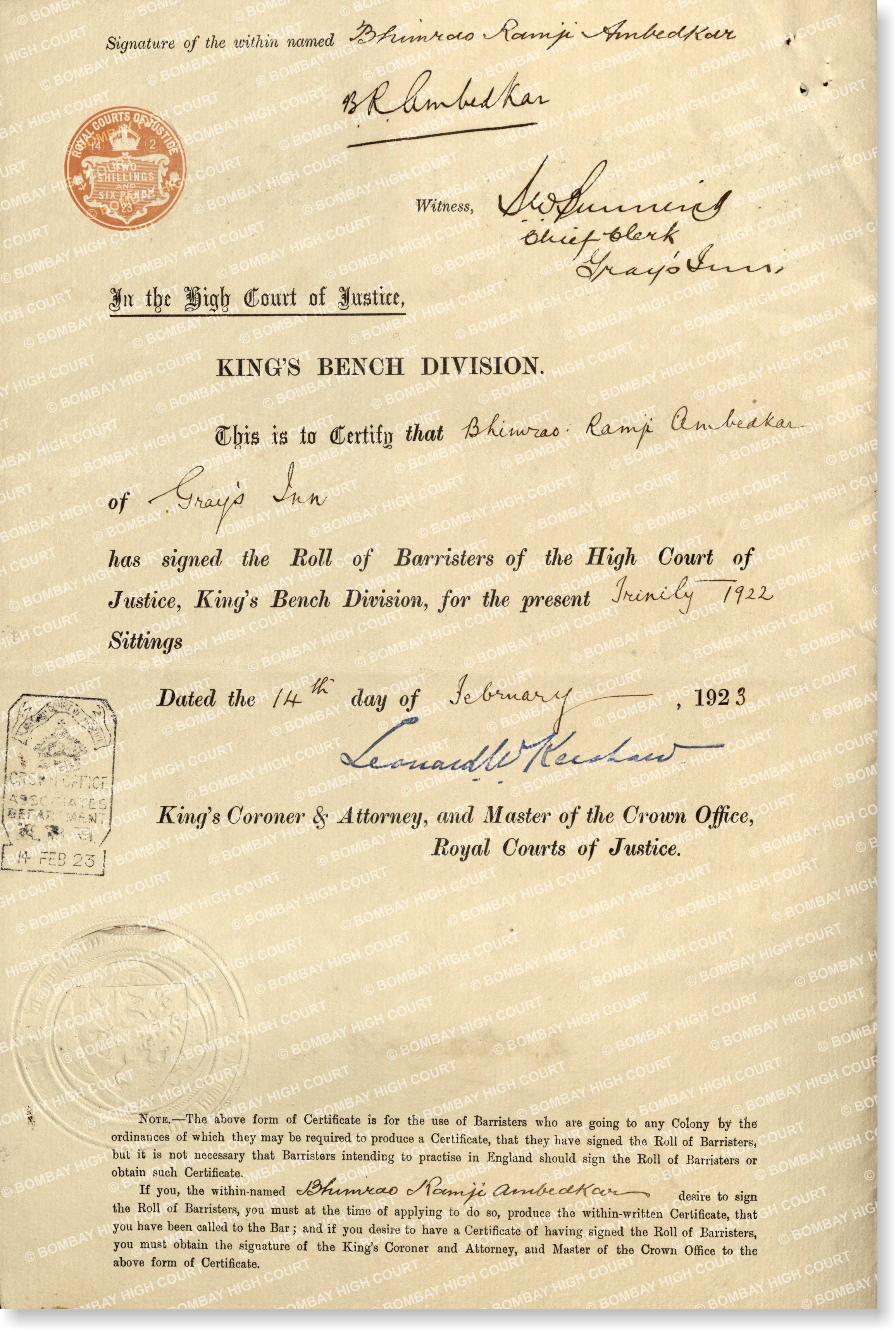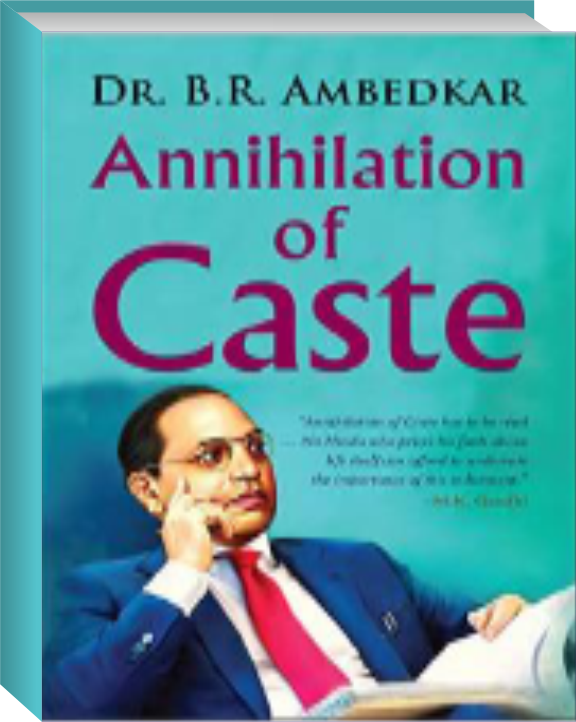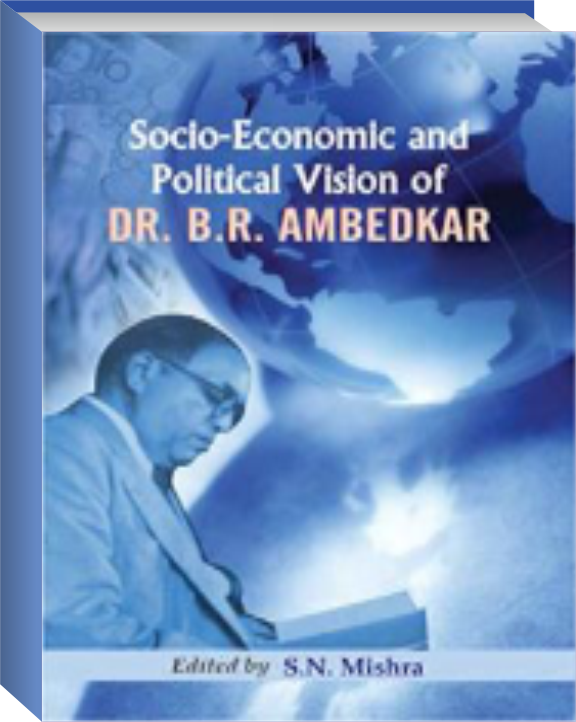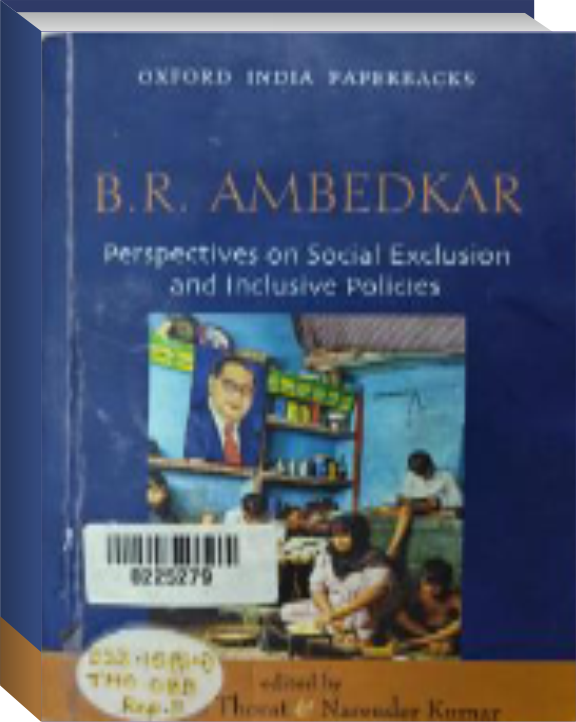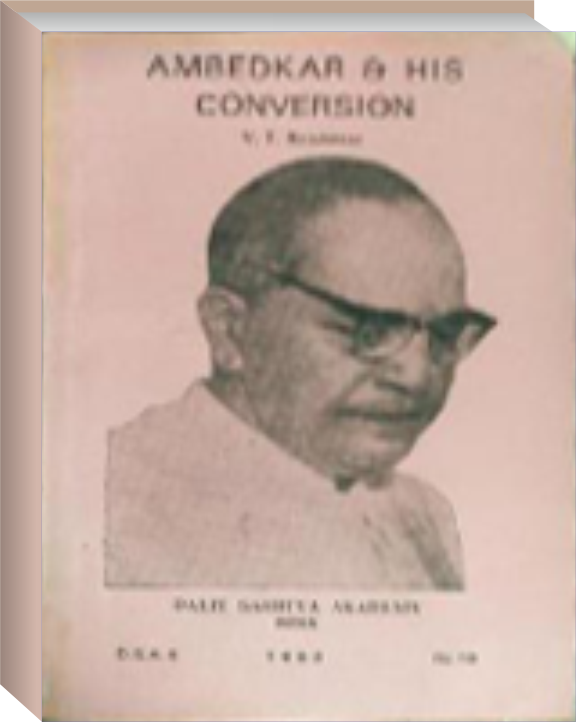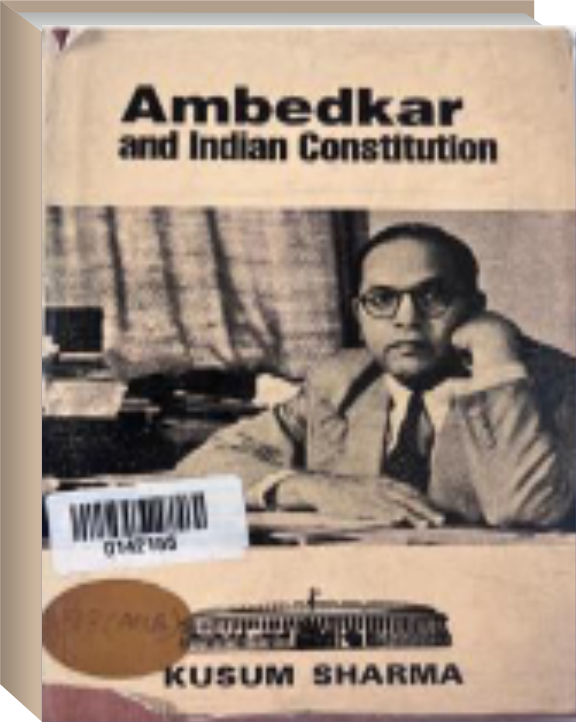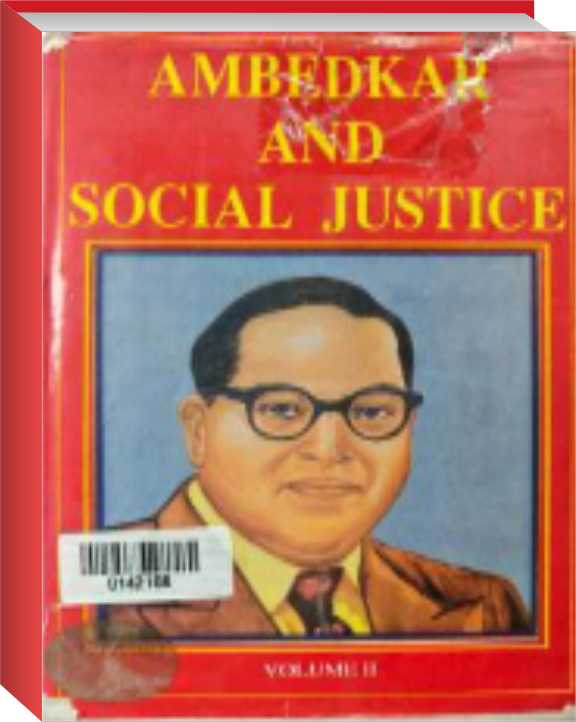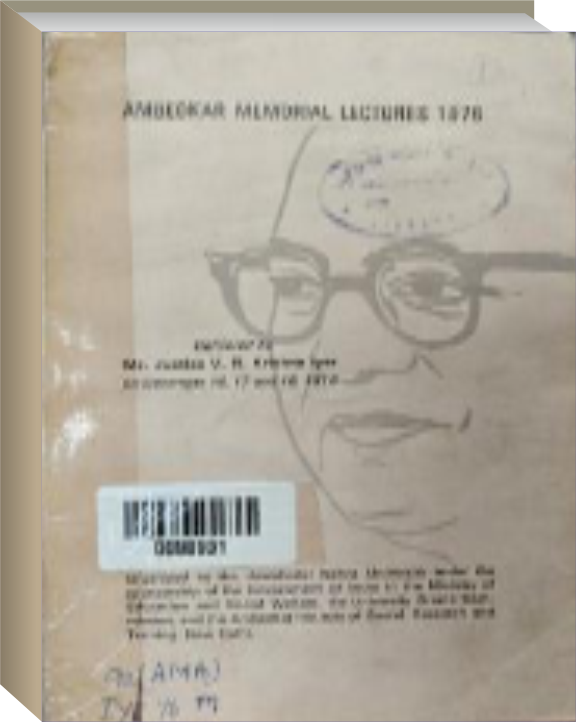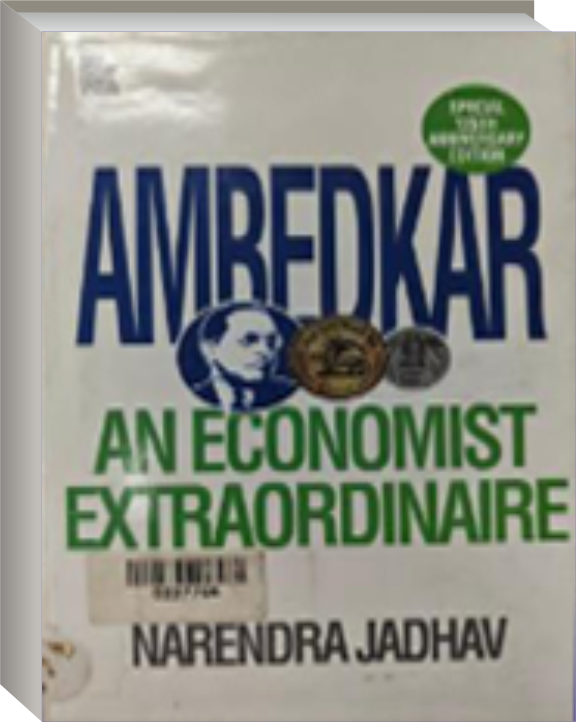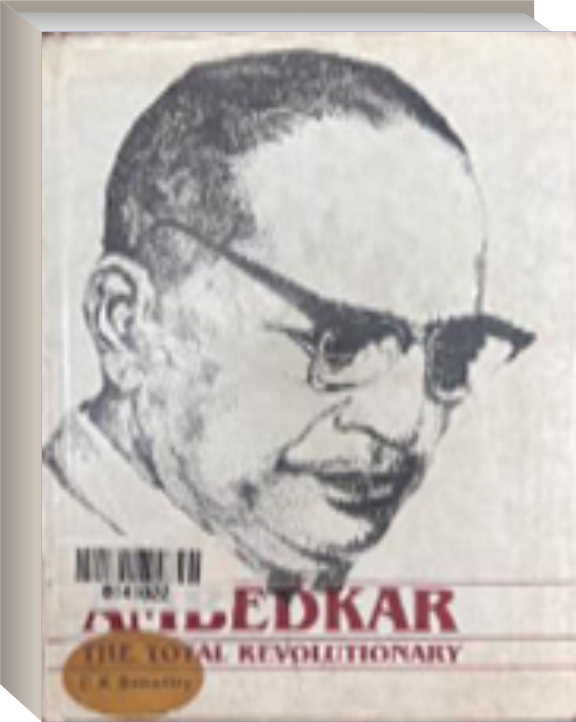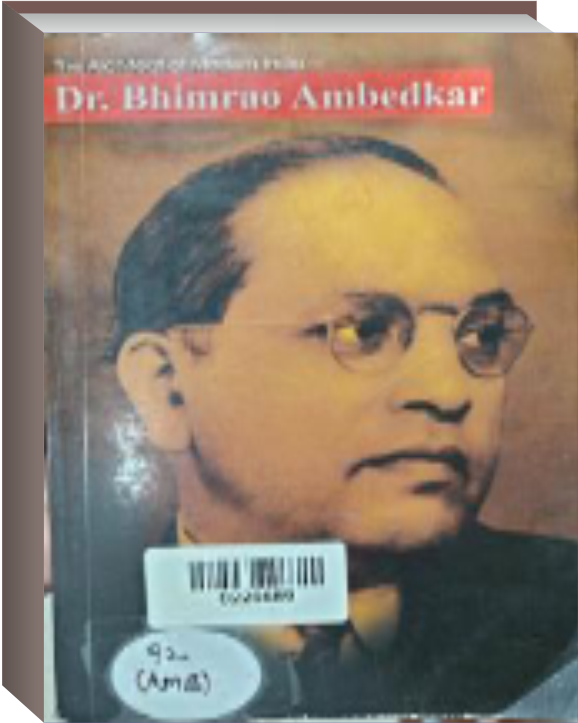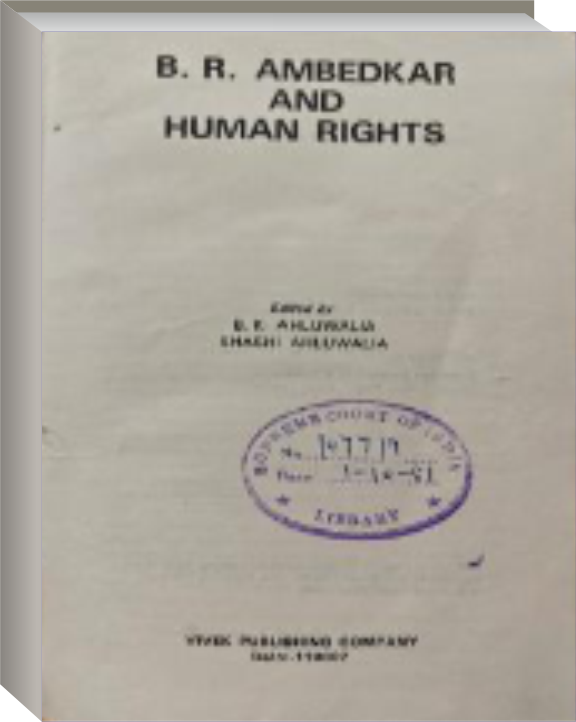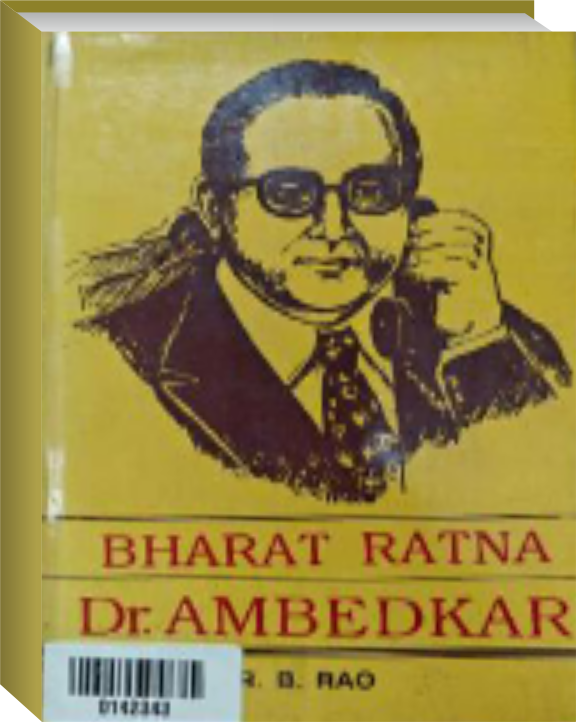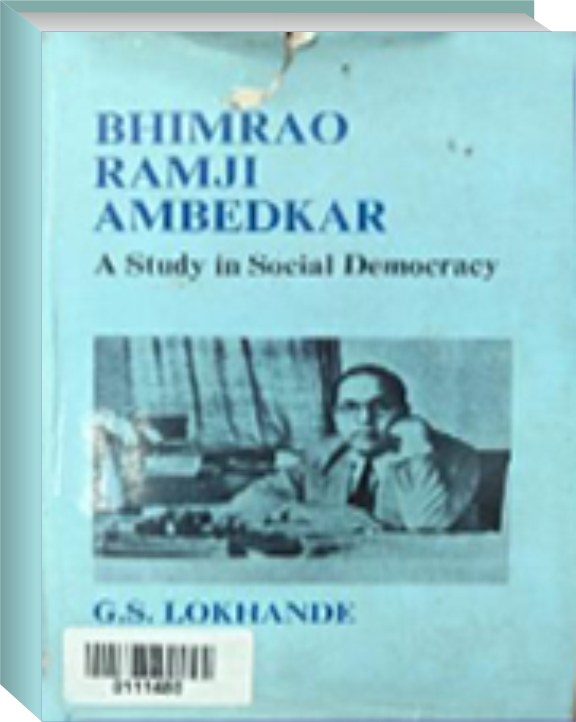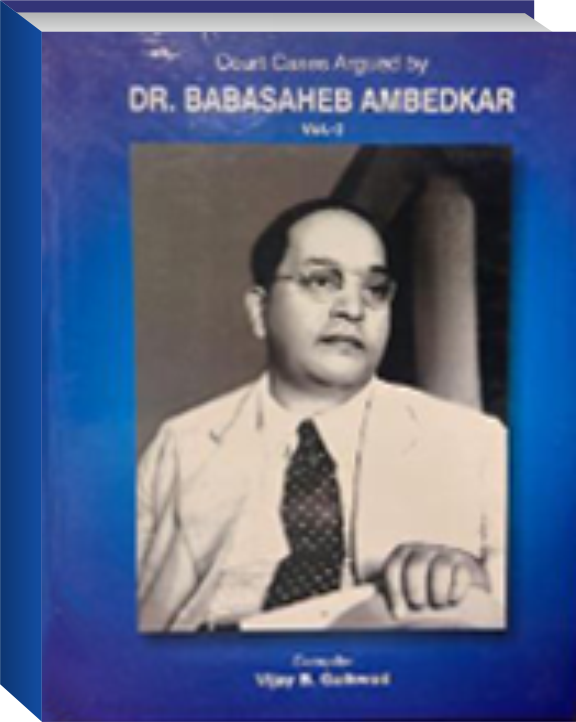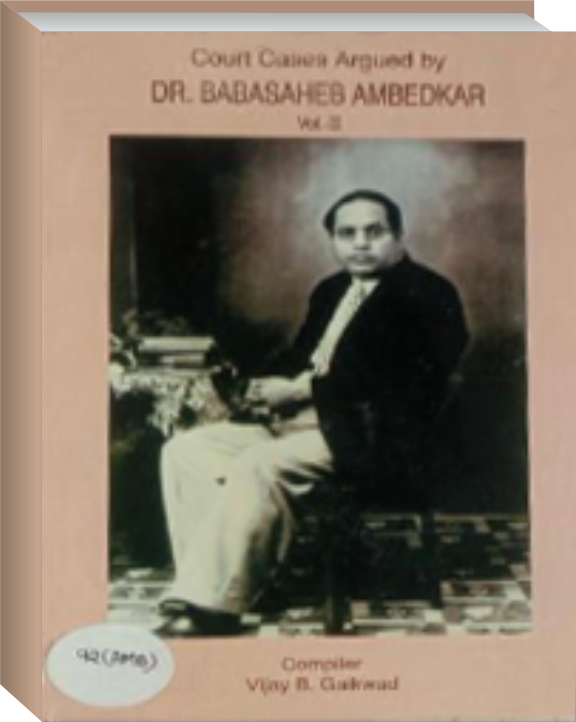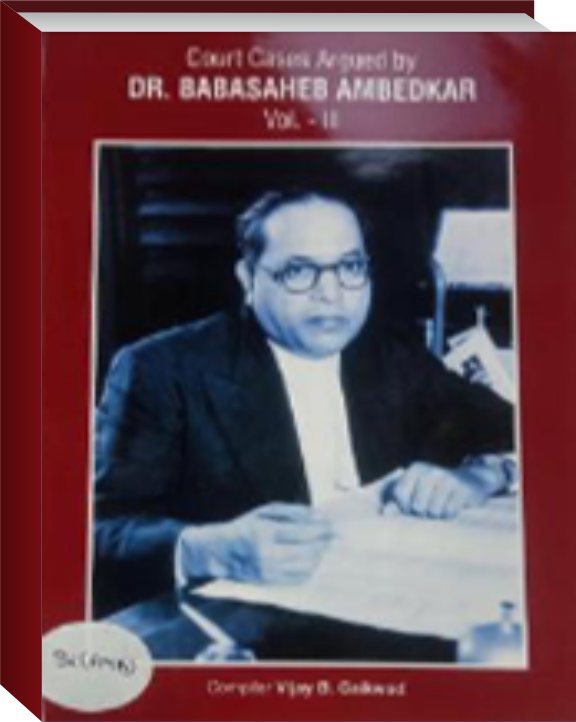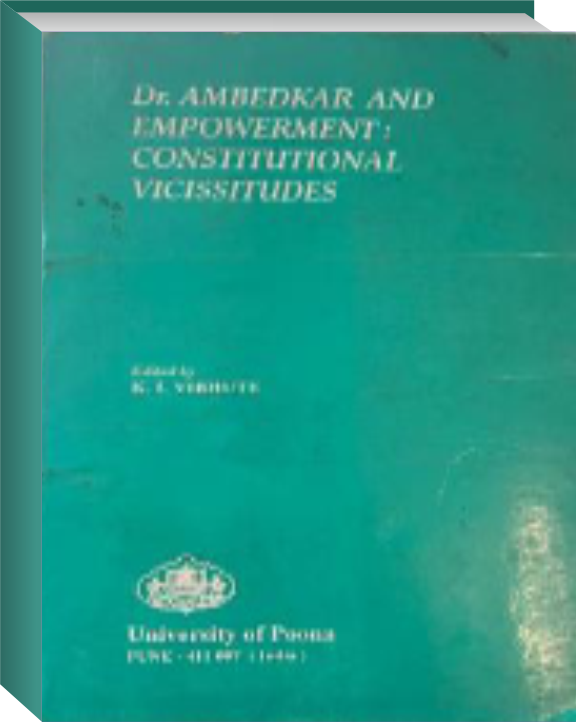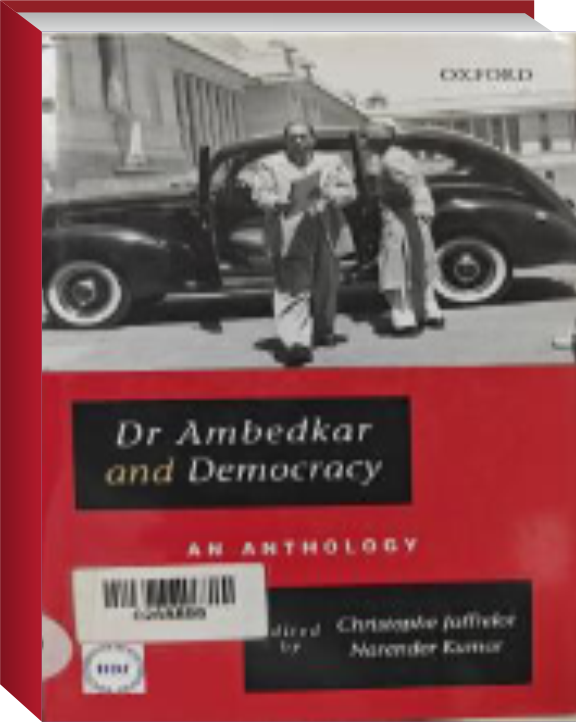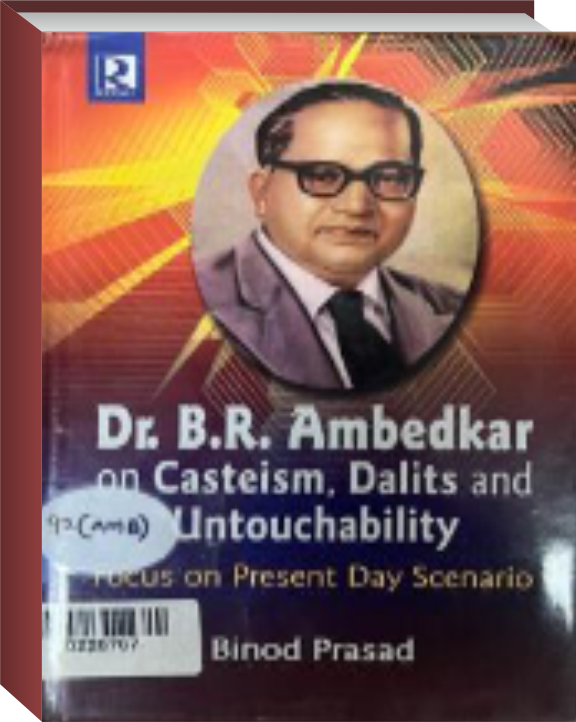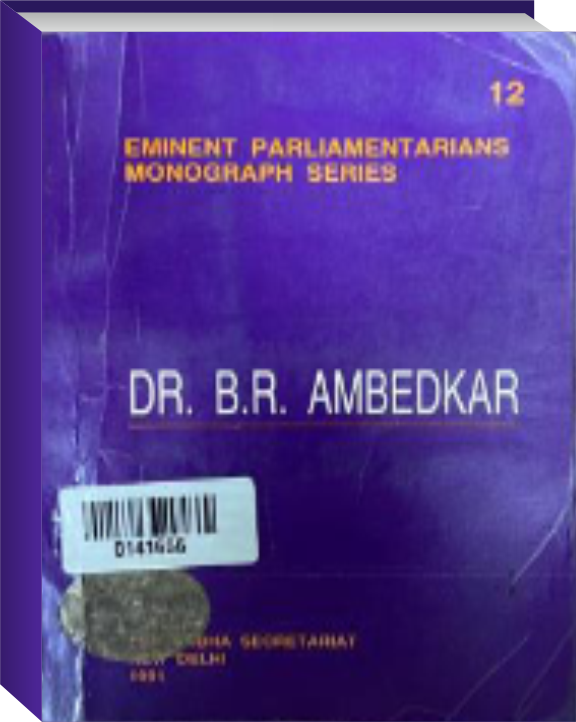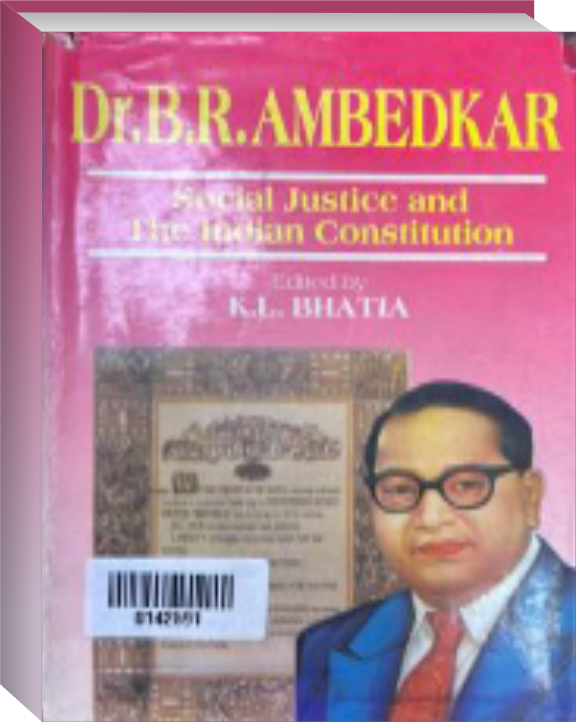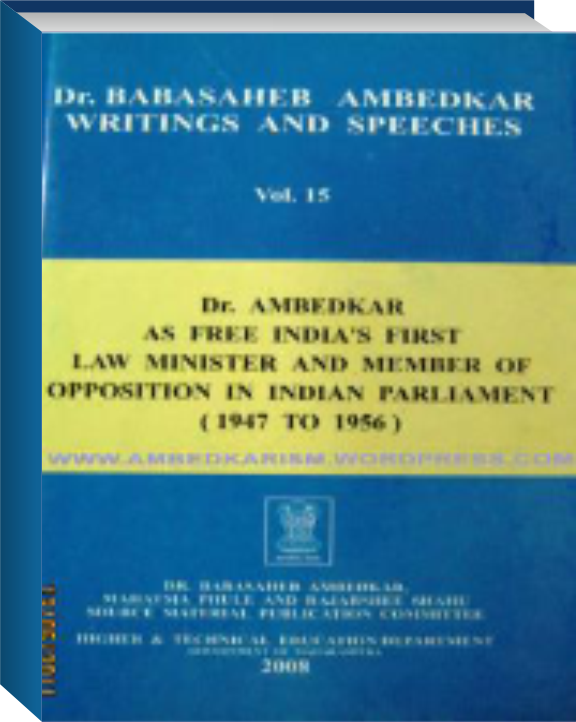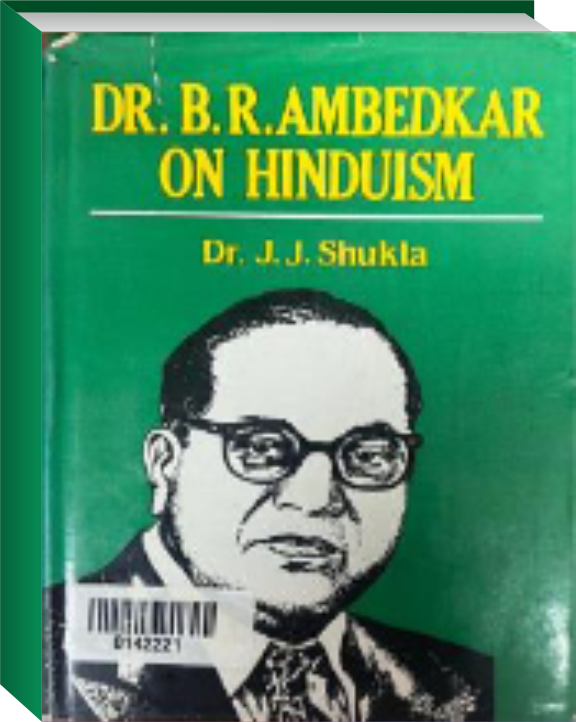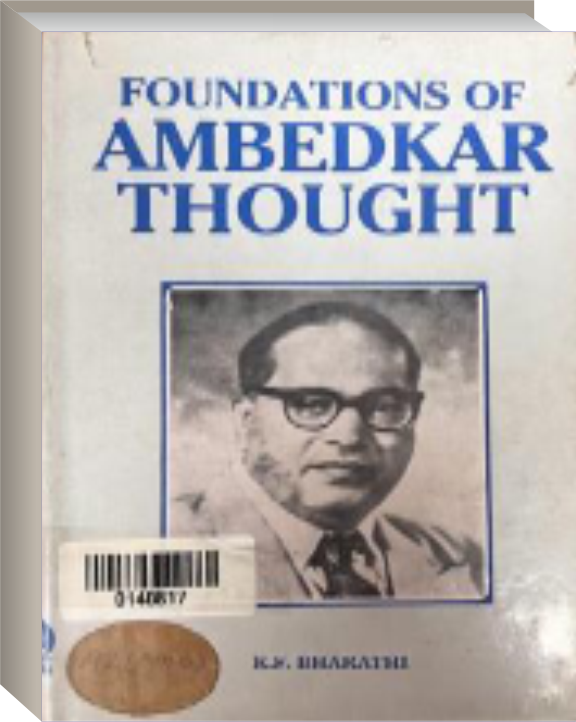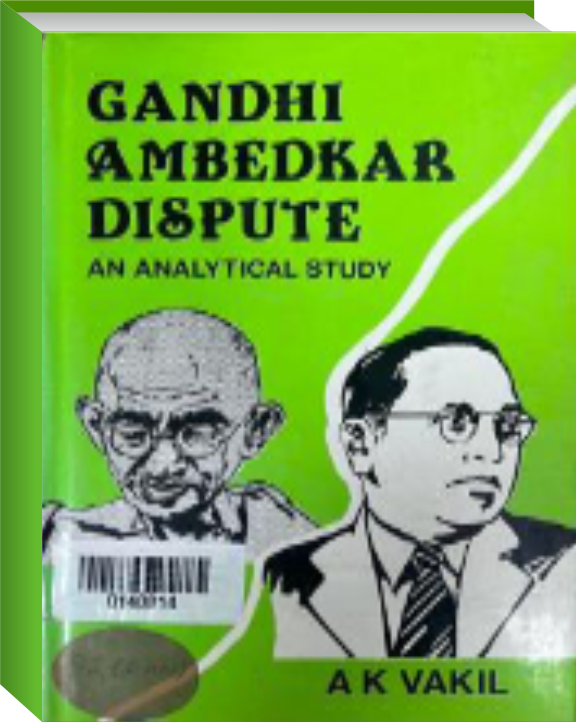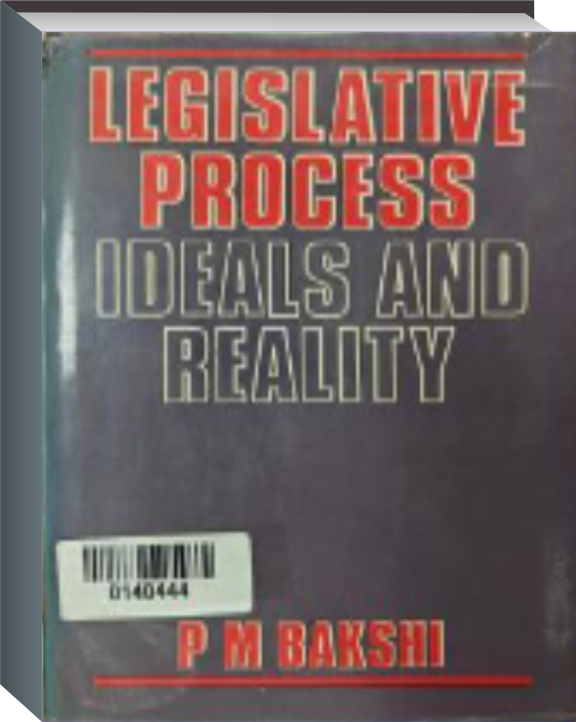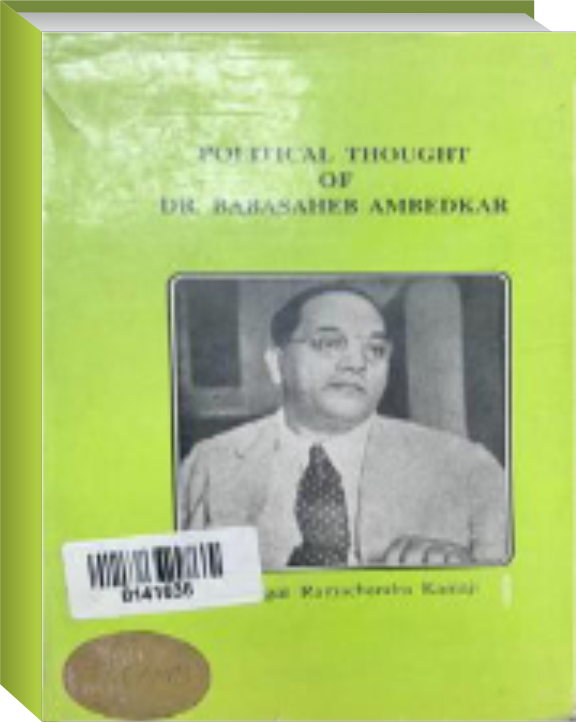Court Cases Argued by Dr. B.R. Ambedkar
Criminal Procedure Code, Section 225 – Omission to state common object of unlawful assembly in a charge is not fatal – Where the common object of an unlawful assembly is specified in the complaint and found by the Court, its Omission in the charge does not vitiate trial: 21 Cal 827, Appl. and 22 Cal. 276 Dist.
[Ambedkar and B.G. Modak – for Applicant]
Citation : AIR 1926 Bombay 314
Workmen’s Compensation Act (1923), Section 3 – Death of workman caused through his act which was incidental to his work – His act was held to arise out of and in the course of his employment.
Held: that the act of the deceased workman in removing the hession cloth was incidential to his work and was done in the performance of his duty, and arose out of and in the course of his employment within S. 3.(P.224, C. 2)
[H.V. Divatia – for Appellant. Ambedkar B.G. Modak – for Respondent.]
Citation : AIR 1927 Bombay 223
Criminal Procedure Code (Act V of 1898), Sec. 239 – Criminal trial – Joint trial – Printer and publisher of an alleged seditious pamphlet – Indian Penal Code (Act XLV of 1860), Sec. 124A. The printer and the publisher of a pamphlet alleged to be seditious can properly be tried jointly for an offence pubnishable under Sec. 124A of the Indian Penal Code, 1860.
[Kanga, Advocate General, with O’Gorman for the Crown, Dalvi, with Ambedkar, for accused No. 1 and Sir Chimanlal Setalvad, with F.J. Patel and Ratanlal Ranchhoddas, for accused No. 2]
Citation : 1928 (30) Bom.L.R. 320
Evidence Act, Ss.9 and 14 – Admissibility of copy of letter written by accused as evidence when the original one was not forthcoming.
Held: that (1) the copy of the letter was relevant to show the accused’s intention and could be admitted as evidence; and (2) it is not necessary for the prosecution to prove that such a letter was sent before the copy could be admitted as evidence [P77 c 2 P. 78 C1].
[Kanga – for the Crown, F. S. Talyarkhan – Gupte, Ambedkar and Ratanlal Ranchhoddas – for Accused.]
Citation : AIR 1928 Bombay 77
Evidence Act, Sec. 14 – Intention of accused charged under S. 124-A, I.P.C. – Writing made, by him and found with him is relevant on the question of intention.
[Kanga, O’Ogrman – for the Crown, F.S. Talyarkhan, Gupte, Ambedkar and Ratanlal Ranchhoddas – for Accused.]
Citation : AIR 1928 Bombay 78
Code of Criminal Procedure, Sec. 195 – Court has power to sanction prosecution for an offence before Commissioner appointed by it – The commissioner is Subodinate to the Court appointing him and the offence to refuse to take the oath and answer the question put by the commissioner is an offence against the Court itself.
[Ambedkar K.A. Padhye – for Applicant, P.B. Shingne – for the Crown.]
Citation : AIR 1927 Bombay 647
Penal Code, Sec. 373 must be read with S. 372 – Object of the possession is the test – Possession for two or three hours by the brothel-keeper in the night is sufficient possession – Bombay Prevention of Prostitution Act, 1923, Sec. 6 – Brothel-keeper availing hereself of the supply of the procuress is guilty of abetment.
[Brown – for the Crown, Daruwalla and Ambedkar – for Accused.]
Citation : AIR 1928 Bombay 336
Civil P.C. (1908) Sec. 152-Decree drawn up in terms of interlocutary application instead of according to final order owing to mistake on part of ministerial servant Court has inherent power to amend decree – Under Sec. 125 the Court has inherent power to vary or amend its own decrees or orders so as to carry out its own meaning. Hence where a decree was apparently drawn up in the terms of the interlocutory application for a final decree by a mistake on the part of a ministerial servant, but it ought to have been drawn up according to the final order of the Judge himself:
Held: that the Court had inherent power to amend it.
[Ambedkar, W.B. Pradhan and G.S. Gupte – for applicant, A.G. Desai and P.B. Gajendragadkar – for Opponent.]
Citation : AIR 1935 Bombay 75
Jurisdiction – Mere definition of areas cannot exclude jurisdiction of Magistrate in rest of district – Sec. 12(2), Criminal P.C. requires express or necessarily implied provisions to exclude jurisdiction – The mere definition of areas of jurisdiction cannot be taken as a provision excluding jurisdiction of the Magistrate in the rest of the district. Sub-Sec. 2, Sec. 12 Criminal P.C. clearly requires some provision excluding jurisdiction in the rest of the district, which is either express or must be inferred by necessary implication. 1921 All 123, Diss from (P. 410 C1).
[B.R. Ambedkar and V.D. Limaye for Accused. P.B. Shingne – for the Crown.]
Citation : AIR 1935 Bombay 409
Trade Disputes Act (VII of 1929), Secs. 16, 17 – Illegal strike – Furtherance of trade dispute within the trade – Association of other disputes renders strike illegal -“Government” – “Community” – “Designed or calculated” – Interpretation – severe, general and prolonged hardship upon the community – Compulsion on Government – General strike in textile industry of India.
[K.Mcl. Kemp, Advocate General, with P.B. Shingne, Government Pleader – for the Crown., B.R. Ambedkar, S.C. Joshi and N.B. Samarth, with A.S. Asyekar and A.G. Kotwal, for accused.]
Citation : 1935 (37) Bom 892
Evidence Act (1872), Sec. 108 Person not heard of for more than seven years cannot be presumed to have died at particular date. Transfer of Property Act (1882), Ss. 43 and 6 – Erroneous representation by transferor that he is full owner though in fact entitled merely to spes successionis – S. 43 operates
[P.V. Kane – for Appellants, Dr. B.R. Ambedkar , S.A. Desai and S.A. Kher – for Appellant No. 6, G.N. Thakore and B.D. Belvi – for Respondent No. 1]
Citation : AIR 1938 Bombay 228
Saranjam – Saranjamdar has no right to create saranjam – A saranjam which is a political inam, appears by its very nature to be incapable of being created except by Government or the sovereign power alone. Hence it is not possible for a saranjamdar to create a saranjam in favour of a stranger : AIR 1929 Bom 14, Expl. Inam – Alienation of sarva inam – Suit to set aside.
[Dr. B.R. Ambedkar B.D. Belvi – for Appellant., G.N. Thakor and S.B. Jathar – for Respondent 1.]
Citation : AIR 1938 Bombay 331
Hindu Law – Alienation – Father – Mortgage not for antecedent debt does not bind son’s interest even if debt is not proved to be for immoral purpose.
[P.B. Gajendragadkar (in No. 303), Dr. B.R. Ambedkar Ramnath Shivlal for A.S. Asyekar (in No. 69), for Appellants., Dr. B.R. Ambedkar and Ramnath Shivlal for A.S. Asyekar (in No. 303), for Respondent 1; P.B. Gajendragadkar (in No. 69), for Respondents 1 to 3.]
Citation : AIR 1938 Bom 443
Hindu Law – Alienation – Manager – Creditor making inquiry and satisfying himself that manager is acting for benefit of estate or family – Real existence of alleged necessity is not condition precedent to validity of charge – What is legal necessity and what is for benefit of estate depends upon circumstances of each case – No duty is cast on creditor to inquire as to what happened to money subsequently. Hindu Law – Alienation – Father – Ancestral property – Alienation is not void but only voidable by son – He can also ratify it. Hindu Law – Alienation – Legal necessity – Second mortgagee of joint family property taking his mortgage with notice of fact that first mortgage was for legal necessity – He cannot raise question of want of legal necessity.
[G. N. Thakor and K.G. Datar – for Appellant. Dr. B.R. Ambedkar G.R. Madbhavi – for Respondent.]
Citation : AIR 1938 Bom 388.
Criminal Trial – Duty of prosecution to call witnesses – Eye witnesses when not numerous must all be examined. Evidence Act (1 of 1872), S. 155(3), S. 145 – Oral statements made to witnesses by others – Questions to witnesses about those statements are legally admissible.
[ Dr. B.R. Ambedkar and T. G. Chobles – for Accused No. 1. T.J. Kedar, R.K. Rau, R.G. Rau, S W.A. Rizwi and W.C. Dutt – for Appellants Nos. 2 to 14.]
Citation : AIR 1939 Nagpur 13
Hindu Law – Alienation – Father – Subsequently born son – Alienation by sole surviving coparcener cannot be objected to by son born to or adopted by him subsequently. Hindu Law – Debts – Coparcener – Debts incurred by sole surviving coparcener are not binding on son adopted in the coparcenary subsequently, unless contracted for necessary purposes or benefit of the family.
[S.R. Purulekar (in No. 149), Dr. B.R. Ambedkar, G.R. Madbhavi and K.R. Bengeri (in No. 222) – for Applellants]
Citation : AIR 1939 Bombay 266
Contract Act (1872), S.2(h) – Nudum pactum – Solicitor’s costs – Solicitor agreeing to accept full taxed costs only in event of success so as to lighten burden of client in event of failure – Agreement is valid and enforcible. Civil P.C.(1908), O.45,R.7 – Object of security – Solicitor can recover his taxed costs by summary proceeding from amount deposited under O.45,R.7.
[ H.C. Coyajee and P.B. Gajandragadkar – for Applicants. Dr. B.R. Ambedkar, and L.G. Khare, and Y.V. Dixit and B.N. Gokhale – for Respondents]
Citation : AIR 1939 Bombay 250
Hindu Law – Religious endowment – Right of worship – Private family devasthan – Worship and management given to members by annual turns but without right to alienate – Descendants through females cannot inherit right of worship and management.
[ Dr. B.R. Ambedkar,and P.S. Bakhale – for appellant. G.K. Chitale and C.H. Patwardhan – for Respondent.0]
Citation : AIR 1939 Bombay 207
Will – Construction – “My community” – Interpretation – The Chitpavan sub-section of the Maharashtra community is a community by itself having peculiar characteristics which distinguish it from other communities forming part of the larger Maharashtra community: 7 Bom 333, Ref – A testator, a Chitpavan Brahmin (Hindu), by his will directed his executors to pay certain legacies and bequests. One of them read as: ” A sum of Rupees… towards medical relief of persons of my community or any other charitable purpose of utility of my community, such object to be named after me:” – Held that the words “my community” referred to Chitpavan Brahmin (Hindu) community and not to the Dakshini community as a whole.
[S.R. Tendulkar – for Plaintiff, Dr. B.R. Ambedkar , M.H. Gandhi and D.B. Desai, and K.A. Somjee – for Defendants 2 &3, and 4 Respectively.]
Citation : AIR 1939 Bombay 202
Grant – Grant of soil in alienated village by Peshwa in 1778 – Inamdar is owner of trees standing on lands already in occupation of khots, dharekaris and permanent tenants. Adverse Possession – Right to trees – Khots, dharekaris and permanent tenants in alienated village openly cutting trees on their lands for more then 35 years to knowledge of inamdar and without his permission – Inamdar’s claim to trees is barred.
[Dr. B.R. Ambedkar and A. A. Adarkar – for Appellants. H.C. Coyajee and Y. V. Dixit – for Respondent (Plaintiff)]
Citation : AIR 1939 Bombay 405
Dekkhan Agriculturists Relief Act (17 of 1879), S.15-D – Suit for account is not maintainable if it requires setting aside sale of equity of redemption – A suit for account of a mortgage which requires the setting aside of the sale of equity of redemption is not maintainable under S. 15-D.
[Dr .B.R. Ambedkar and B.G. Modak – for Appellants.,M.G. Chitale – for Respondent]
Citation : AIR 1939 Bombay 419
Limitation – Limitation can be pleaded even in appeal. Bombay Land Revenue Code (5 of 1879), S. 133 – Sanad granted under S. 133 is not document of title – Person suing for possession need not set aside sanad before obtaining possession – Art. 14, Limitation Act, is not bar to such suit.
[H.C. Coyajee, M.R. Vidyarthi, R.A. Desai, B. Moropanth and R.P. Cholia – for Appellant. B.R. Ambedkar, M.H. Vakeel and P.N. Shende – for Respondent.]
Citation : AIR 1939 Bombay 425
Civil P.C. (1908), S.68 – Date on which status of judgment – debtor is to be considered is date when order for sale is passed. Civil P.C. (1908) O.21, R.64 – Order under O.21, R.64 may be modified if judgment – debtors appear under O.21, R.66 and prove that they are agriculturists. Civil P.C. (1908), S.47 and O.21, R.66 – Administrative directions relating to proclamation of sale do not fall under S. 47 – But order as to whether sale is to be held by Court itself or by Collector falls under S 47.
[K.N. Dharap – for Appellants., Dr. B.R. Ambedkar V.B. Virkar – for Respondents.]
Citation : AIR 1939 Bombay 526
Surety – Managing agent of company standing surety for debt due by company to its creditor – Company would up – Scheme under S. 153, Companies Act – Creditor receiving half sum in cash and other half in shape of preferential shares – This held did not discharge surety. Surety – His liability is co-extensive but not in the alternative. Hindu Law – Joint family business – To justify manager’s standing surety on ground of legal necessity requires strong evidence. Hindu Law – Joint family business – Question whether passing of letter of guarantee by manager is ordinary incident of business is question of fact.
[G.N. Thakor and S.G. Patwardhan – for Appellant. Sir Jamshedji Kanga, B.R. Ambedkar, Ramnath Shivalal and A.S. Asyekar – for Respondents.]
Citation : AIR 1940 Bombay 247
Bombay Abkari Amendment Act (6 of 1940), S. 6 – S. 6 deleting proviso to S. 14-B(1) of Abkari Act – Object of deletion stated. Bombay Abkari Amendment Act ( 6 of 1940), S. 7 – Construction – S. 7 is not retrospective – Notifications effective at date of passing of amending Act alone fall under S. 7 – S. 7 does not affect notifications already rescinded or declared invalid – Notification declared ultra vires by High Court falling within S. 7 – S. 7 cannot revive notification. Bombay Abkari Act (5 of 1878), S. 14-B – Notification under S. 14-B(2) declared ultra vires and invalid by High Court is invalid according to law – Every one can act on that view of law. Government of India Act (1935), S. 100 and Sch. 7, List II, item 31 – Effect of, stated – Provincial Legislature has right to prohibit possession of intoxicants – Its right to legislate as to possession of intoxicants must be exercised subject to right of Central Legislature to legislate in respect of import and export across custom frontiers (Obiter).
[M.C. Setalved (Advocate-General) V.F. Taraporewala, G.N. Joshi and R.A. Jahagirdar (Government Pleader) – for the Crown. Sir Jamshedji Kanga, S.G. Velinker, R.J. Kolah and Dr. B.R. Ambedkar – for Accused.]
Citation : AIR 1940 Bombay 307
Bombay City Police Act (4 of 1912, as amended by Act 14 of 1938), S. 27 – Order under S. 27 by Commissioner is not revisable under S. 439, Criminal P.C.
[B.R. Amebedkar and G.J. Mane – for Applicant M.C. Setalvad, (Advocate-General) and R.A. Jahagirdar (Government Pleader) – for the Crown.]
Citation : AIR 1941 Bombay 334
Bombay City Municipal Corporation Act (3 of 1888), S. 390(1) – Offence under – Summons to accused – Accused should be charged in words of section – Accused instead of being charged with having worked factory in which mechanical power was used charged with working fifty – five electric motors for conducting textile mill without permission u/S. 390(1) – No objection to form of summons held could be taken as it sufficiently informed accused of act complained of. Bombay City Municipal Corporation Act (3 of 1888), S. 390(1) – (as amended by Act 1 of 1916) – Construction – S. 390(1) constitutes two independent offences of establishing new factory in which mechanical powers intended to be employed without permission and working factory in which mechanical power is intended to be employed without permission. Bombay City Police Act (3 of 1888), S. 390, S. 514 – Meaning of ‘continuing offence’ explained – Establishing of factory without permission is offence committed once for all when factory is established – But working of factory without permission is an offence which arises on every day on which factory is so worked. Bombay Municipal Corporation Act (3 of 1888), S. 390 – Offence of working factory without permission – Previous acquittal cannot u/S. 403, Criminal P.C., bar subsequent charge of working factory without permission.
[R. A. Jahagirdas, Government Pleader – for the Government of Bombay. B.R. Amebedkar and H.D. Thakor – for Accused.]
Citation : AIR 1942 Bombay 326
Criminal P.C. (5 of 1898), S. 375, S. 423, S. 418 – Death sentence passed by Sessions Judge at jury trial on majority opinion – Appeal by accused and confirmation case before High Court – It is not necessary to dispose of appeal before dealing with confirmation case – Powers of High Court mentioned in S. 376 are not affected by S. 418(1), S. 423(2) – High Court is bound to consider all questions of law and fact.
[B.R. Ambedkar and V.R. Gadkari – for Accused., S.G. Patwardhan, Government Pleader – for the Crown.]
Citation : AIR 1948 Bombay 244
Penal Code (1860) , Sec. 161 – Delay in trapping accused – The fact that nothing is done for a long time (here, two months) between the alleged offer to bribe and the actual trapping of the accused does not suggest that the story is false. The police authorities have per force to wait until the accused make a further move in the matter. It is not reasonable to suggest that the police authorities should go out of their way and actively invite bribes in order to trap the accused.
[Dr. B.R. Ambedkar Shri H.F.M. Reddy, Advocate, instructed by Shri M.S.K. Sastri, Agent – for Appellants; Shri M. C. Setalvad, Attorney – General for India and Shri C. K. Daphtary, Solicitor – General for India (Shri G. N. Joshi, Advocate, with them), instructed by Shri G. H. Rajadhyaksha, Agent – for the State]
Citation : AIR 1953 SC 179
Credits : High Court Of Bombay, All India Reporter
Court Cases Argued By Dr. Babasaheb Ambedkar In Three Volumes Complied By Mr. Vijay B. Gaikwad
